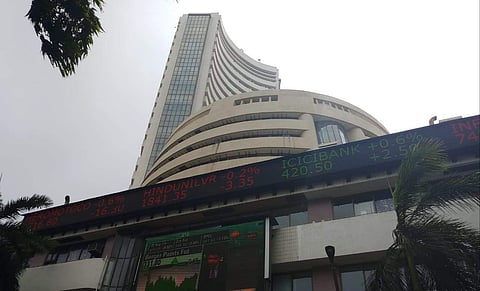

NEW DELHI: Stock market attracts the younger generation for its potential to provide higher returns as compared to the traditional financial instruments. Gen-Z wants to make money quicker, as they have bigger dreams than their prior generations. However, as the capital markets offer opportunities to grow money, they also bear risks. Only a few gain from the markets, and the rest lose.
As Covid pandemic locked everyone inside their homes, a record number of people ventured into stock markets for the first time and that boosted share prices to unprecedented levels in 2021. However, markets across the globe, including India’s, trade in the red in 2022 due to various factors such as Russia-Ukraine war and high inflation rates, among others, thereby many short-term investors losing their money.
According to a Sebi statistics, the number of demat accounts had more than doubled to 7.7 crore as of November 2021 from 3.6 crore in March 2019. As of May 13, BSE Sensex is down over 10% (54,835.58), NSE’s Nifty50 too tumbled nearly 10% year-to-date (YTD). IT, banks, and most other sectors were trading lower YTD. So, who lost most in this losing streak?
Who are these new investors?
Most of them were retail investors, and a majority of them possibly new investors who had idle funds and they invested that in markets to earn better returns. This author came across many such people who had invested in the market during lockdown, as they had surplus money, for not having to pay rent and other expenses. Many others whose businesses were shut and they had investible money, so they had put that in markets. When lockdown eased and economic activities started, they needed that money and they had to exit in loss.
Prabhat Mohanty, a corporate executive who lives in Mayur Vihar, said he initially made around Rs 1 lakh in 2021 and added more stocks at high price, but lost all the gains in choppy trades this year
The stock market bug also bit businessmen like Arun Sharma, who runs a stationary shop in Acharya Niketan market in Mayur Vihar phase-I. When lockdown forced Sharma to keep his shop shut for months, he had some excess money, which he wanted to put in use so that he could meet his daily expenses. One of his friends advised him to trade in stock market. Sharma started trading in November 2020.
“My shares were doing well initially; some stocks were in gain and some in loss. In my portfolio, I had majorly IT stocks, which didn’t do well and moreover, I needed the money when everything was opening. So, in some stocks I had to take a cut. Though my overall loss is not that big, I am still in the negative,” says Sharma.
Trading Vs investing
Investment experts say short-term trades in equities are gambling where one can gain or lose as they are very unpredictable in nature. Therefore, such kind of investments don’t help much to grow ones’ corpus in longer term. Last month, there was a word of caution from ace investor and Berkshire Hathaway CEO Warren Buffett for retail investors who are not privy to the market manipulations.
Buffett, in Berkshire Hathaway annual general meeting, lambasted Wall Street for encouraging speculative behaviour in the stock market, effectively turning it into a “gambling parlor.” The 91-year-old investor said Wall Street makes money catching the crumbs that fall off the table of capitalism and they make money when people are gambling than when they are investing.
Experts say stock markets offer immense opportunity to make money, but one should not fall prey to the speculations and greed. They advise one should invest in equities with a horizon of at least five years.
Rishabh Parakh, a chartered accountant and personal finance expert, said he advises investors to put money with a horizon of at least seven years. “In the short term it’s a gamble, as it is difficult to predict anything.” Market analysts say that one should invest in good businesses that have potential to grow over years, instead of going after speculative trades. Investment is a calculated accumulation of wealth over a longer period of time to meet future needs and when one is not going by that philosophy that might not be an investment, Parekh opined.
Kumar Binit, founder and CEO of financial product platform FinnApp, says, “It takes time to realise the profit in a big company, as businesses invest for long period of time, just like your own business it takes time.” “Our platform advises investors to invest in good business at least for five years.” Returns of Sensex companies have grown multiple times over the past five years. India’s largest conglomerate, in terms of market cap, Reliance industries has given nearly 300% return in the past five years, while India’s largest software company TCS has given 191% in the same period. India’s largest bank SBI returned 62.97% to the investors in past five years.
Jitendra Solanki, a SEBI-registered investment expert based in Noida, said speculative trades are as bad as betting in casino, as chances of losing money is maximum there and that is where the difference lies between a gambler and an investor.
Should new traders bet in future and options?
On this, Parekh said futures and options trading are hedging instruments that help traders protect their money when markets are volatile. However, trading in these segments is only advisable for professional traders, he added.
Caution for retail investors